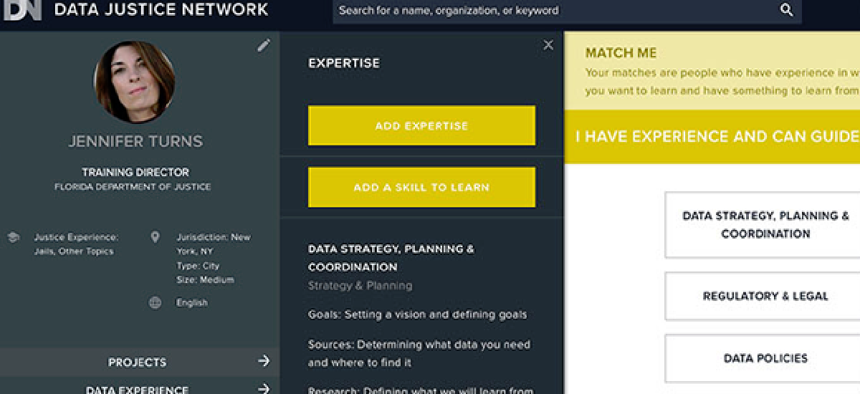Platform leverages criminal justice data and expertise


Connecting state and local government leaders
A new peer-to-peer criminal justice resource helps officials get fast and comprehensive answers to their questions about how to make better use of data to reduce incarceration and crime.
A new criminal justice resource helps officials get fast and comprehensive answers to their questions about how to make better use of data to reduce incarceration and crime.
The Data Justice Network, created by the Governance Lab at the New York University Tandon School of Engineering, uses a web-based platform to foster peer-to-peer learning among criminal justice practitioners and policymakers. On the website, criminal justice professionals can search for colleagues with relevant experience, ask and answer questions and track innovative ways of using data at every stage of the criminal justice process.
“Criminal justice data are collected by multiple agencies, stored in different formats and maintained in various systems,” said Matt Alsdorf, vice president of criminal justice at the Laura and John Arnold Foundation, a sponsor of the project. “The lack of data coordination makes it difficult for jurisdictions to analyze information and evaluate the effect of their local criminal justice policies.”
The invitation-only site allows participants to detail their expertise, describe their data-related projects and experience and list areas they can guide others on, such as data policies, visualization or data standards and platforms. It was designed for practitioners by practitioners to ensure that the platform is both useful and simple, NYU officials said.
With Data Justice Network, participants can get help from peers with issues such as
- Creating a better post-arrest diversion process for the mentally ill.
- Collecting better data about the number of mentally ill or substance abusers in county jails.
- Finding the best way to develop algorithms to predict super-utilizers of the criminal justice system.
“Data can help policymakers understand past performance of public policies and services – both their efficiency and their disparate impact,” GovLab Director Beth Simone Noveck said. “More data enables the delivery of more tailored interventions in the present by making it possible, for example, to identify and divert someone suffering from mental illness or substance abuse into appropriate treatment and out of jail.”
The Data Justice Network was built by GovLab, with support from the Laura and John Arnold Foundation and in collaboration with The Justice Management Institute. Advisors to the project included leaders from Code for America, the National Association of Counties and heads of criminal justice coordinating councils in 22 jurisdictions.





